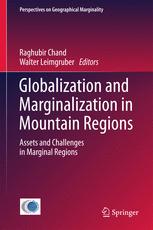

Most ebook files are in PDF format, so you can easily read them using various software such as Foxit Reader or directly on the Google Chrome browser.
Some ebook files are released by publishers in other formats such as .awz, .mobi, .epub, .fb2, etc. You may need to install specific software to read these formats on mobile/PC, such as Calibre.
Please read the tutorial at this link: https://ebookbell.com/faq
We offer FREE conversion to the popular formats you request; however, this may take some time. Therefore, right after payment, please email us, and we will try to provide the service as quickly as possible.
For some exceptional file formats or broken links (if any), please refrain from opening any disputes. Instead, email us first, and we will try to assist within a maximum of 6 hours.
EbookBell Team

4.3
18 reviewsThis book looks at the global importance of mountain systems, emphasizing their ecological and socio-economic role in light of climate change and globalization. With a special focus on the Himalayas, it also examines the Czech–German–Austrian mountain borderland, the Alps, the Andes, the highland regions of Malaysia, and the Arctic. The contributors, specialists in their fields, all use an integrative approach that develops and argues the concept of mountain regions as a global common good. Readers also discover that mountain systems and mountain communities are often marginalized and left behind by the process of globalization. Case studies throughout detail the effects of climate change and global warming on both nature and local/regional societies, such as declining water supplies, a shifting vegetation line, and other important issues facing not only mountains but also the vast regions depending on them. In addition, the comprehensive coverage offers authenticated viewpoints from some of the most eminent explorers of Tibet in the nineteenth century. More than 50 percent of the global human population draws benefits directly or indirectly from mountain resources and services. This book provides practitioners, researchers, students, and other interested readers with a compelling look at the global importance of this imposing, yet sensitive ecosystem.